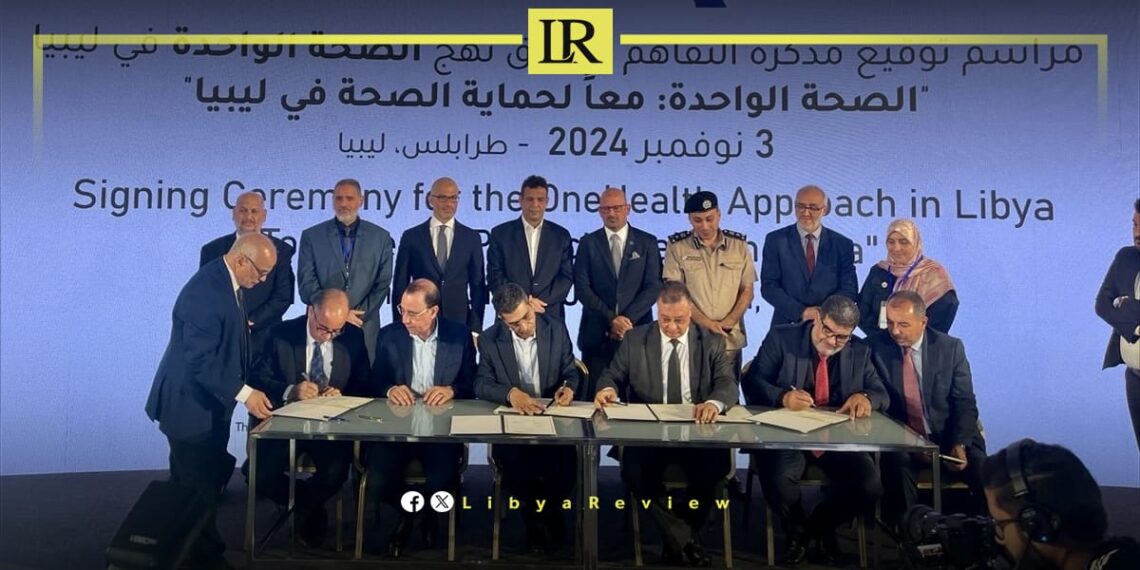The European Union (EU) and Libya have signed a memorandum of understanding to launch the “One Health” approach in Libya, aimed at fostering an integrated strategy for human, animal, and environmental health.
The agreement was signed in a ceremony attended by the EU Ambassador to Libya, Nicola Orlando, and the Libyan Minister of Health for the Government of National Unity, Ramadan Abu Janah.
According to Ambassador Orlando, the EU-funded initiative is overseen by the World Health Organisation (WHO) and establishes Libya as one of the first countries worldwide to adopt this comprehensive model.
He emphasised the benefits it will bring to communities across the country, underscoring the EU’s commitment to supporting Libya’s Ministries of Health, Environment, Local Governance, and Agriculture, along with the Food and Drug Control Center, in achieving this vision.
Libya has been in chaos since a NATO-backed uprising toppled longtime leader Muammar Gaddafi in 2011. The county has for years been split between rival administrations.
Libya’s economy, heavily reliant on oil, has suffered due to the ongoing conflict. The instability has led to fluctuations in oil production and prices, impacting the global oil market and Libya’s economy.
The conflict has led to a significant humanitarian crisis in Libya, with thousands of people killed, and many more displaced. Migrants and refugees using Libya as a transit point to Europe have also faced dire conditions.
The planned elections for December 2021 were delayed due to disagreements over election laws and the eligibility of certain candidates. This delay has raised concerns about the feasibility of a peaceful political transition.
Despite the ceasefire, security remains a significant concern with sporadic fighting and the presence of mercenaries and foreign fighters. The unification of the military and the removal of foreign forces are crucial challenges.


